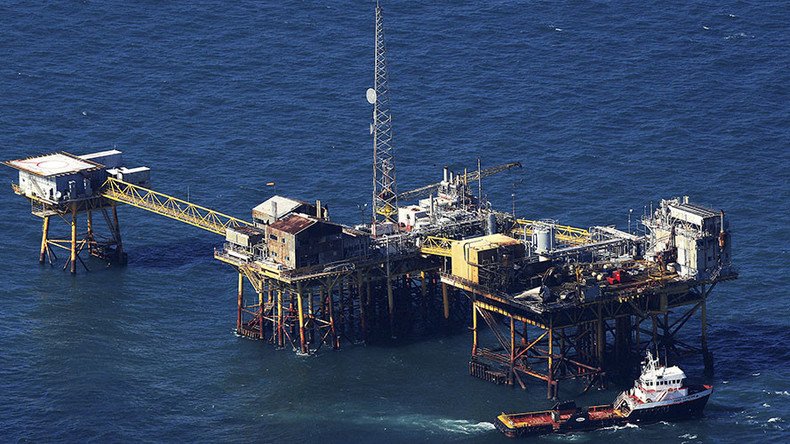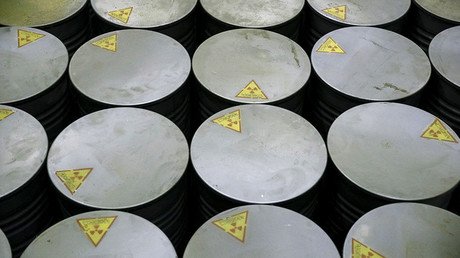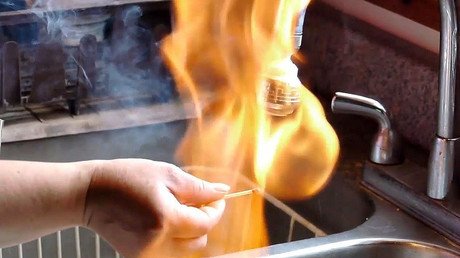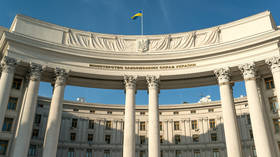Obama quietly approves hundreds of offshore fracking drills in Gulf of Mexico

The Obama administration has granted hundreds of offshore fracking permits in the Gulf of Mexico, allowing dangerous fracking chemicals to pollute the Gulf, documents reveal.
Truthout reports the Center for Biological Diversity uncovered documents that reveal the administration approved over 1,200 offshore fracking applications between 2010 and 2014, which took place in hundreds of wells in the Gulf of Mexico, including within the habitat of loggerhead turtles. The administration allowed oil companies to dump over 76 billion gallons of wastewater into the Gulf waters in 2014 alone, the CBD’s press release states.
“The Obama administration is essentially letting oil companies frack at will in Gulf ecosystems and dump billions of gallons of oil waste into coastal waters,” said Kristen Monsell, a CBD lawyer. “Every offshore frack increases the risk to wildlife and coastal communities, yet federal officials have been just rubber-stamping this toxic practice in the Gulf of Mexico for years.”
Truthout reports that the documents also show offshore fracking is being permitted without conducting analysis of the risk to the environment. Over 300 exclusions were issued to exempt drilling plans from environmental reviews, echoing the 2010 revelations that BP’s Deepwater Horizon rig received such exemptions in the lead up to the worst oil spill in US history.
Fracking is a drilling technique that extracts oil and gas from the ground by blasting powerful, high-pressure water, sand and chemicals into shale rock, fracturing it and allowing oil and gas to be accessed.
While the chemicals used in fracking water are largely secret, hydrochloric and hydrofluoric acid are used to break up rock under the sea. Hydrofluoric acid is corrosive and “forms a poisonous vapor cloud when heated,” according to Truthout.
While the effects from fracking are hotly debated, the lack of details that are known about the process is an issue in of itself.
“Nobody can say how much of any type of waste is being produced, what it is, and where it’s ending up,”said Nadia Steinzor of the group Earthworks, which is involved in a lawsuit that seeks to compel the US Environmental Protection Agency to take a larger role in tracking and regulating hazardous drilling waste.
In addition, fracking has a reputation for poisoning drinking water. For example, in a small Wisconsin town, it was discovered that the wastewater from a nearby fracking site had contaminated underground sources of drinking water, making it unsafe to use.
The site that poisoned the water in Pavillion, Wisconsin was located on solid ground. How an offshore fracking site would affect the Gulf Coast is open to speculation.
The CBD accessed the documents after challenging the US Bureau of Safety and Environmental Enforcement (BSEE) and the Bureau of Ocean Energy Management’s (BOEM) failure to produce documents in response to a Freedom of Information Act request with a lawsuit.
Both BSEE and BOEM were set up by Obama in the wake of the BP oil spill. The Government Accountability Office recently found BSEE had failed to complete “a policy outlining investigative responsibilities or updated procedures for investigating incidents.”
There are more documents still to be released.
“The federal government certainly has no right to give the oil industry free rein to frack our oceans — or to keep coastal communities in the dark about this toxic industrial activity,” Monsell said.















